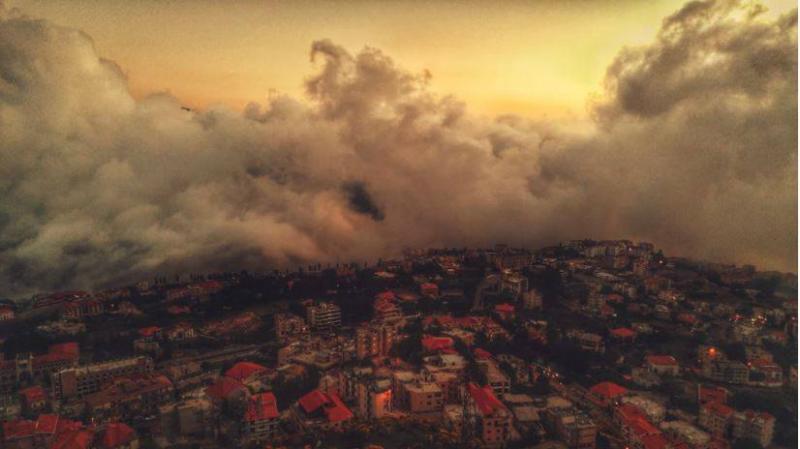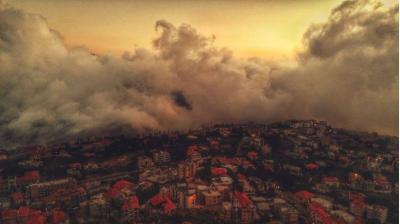The electronic newspaper "Al-Anbaa" reported that Arab countries will not abandon Lebanon. This is the conclusion drawn from communications that intensified between Beirut and Riyadh, guided by the head of the Progressive Socialist Party, Walid Jumblatt, who sent a member of the Democratic Gathering bloc, MP Waeel Abu Faalour, to Saudi Arabia as part of these efforts in partnership with the French. The return of the Saudi and Kuwaiti ambassadors is expected soon, as announced by Abu Faalour, revealing to "Al-Anbaa" that his meeting with Saudi officials addressed joint arrangements with the French to support social institutions, the possibility of Saudi participation in the international fund for supporting the Lebanese army and security agencies, and steps to restore relations to normalcy and ways to develop them.
Monitoring sources noted the upcoming meeting of the foreign ministers of the Gulf Cooperation Council at the end of this month and its position regarding the restoration of relations with Lebanon, expecting "Al-Anbaa" to take positive steps in this meeting towards Lebanon that could restore Lebanese-Gulf relations to their former state. The sources emphasized the significance of the Gulf's return to Lebanon amid the severe crisis it is experiencing, especially since Arab partnership is a fundamental requirement from the international community in any new agreement or support conference for Lebanon, whether through the International Monetary Fund or the World Bank and others.
In a political context regarding this important development, Member of the Future bloc, MP Assem Araji, stated in an interview with "Al-Anbaa" that the news of the return of the Saudi and Kuwaiti ambassadors to Lebanon is a positive gesture. Lebanon cannot live in isolation from its Arab brothers; it is an Arab country by identity and affiliation, and it cannot exist outside of its Arab environment. It cannot be anti-Persian, anti-Western, or anti-Eastern. He highlighted the enormous aid provided by Saudi Arabia and Kuwait to Lebanon since the early 1970s until the beginning of this era, which greatly contributed to Lebanon's prosperity and growth. Araji stressed that the Lebanese economy primarily relies on Gulf support, which includes the largest Lebanese community of over 500,000 families, who are primarily responsible for supporting the Lebanese economy, hoping for an end to the hostile policy announced by Hezbollah towards Saudi Arabia as it has significantly harmed Lebanon's interests. He called for Lebanon to commit not to harm the Gulf Cooperation Council countries, stop drug trafficking to them, and refrain from interfering in the conflicts in Yemen and Iraq.
Regarding the President's stance defending Hezbollah at the Vatican, Araji believed that Aoun's position has been known since before the Mar Mikhael Agreement, yet he was surprised by how the President speaks about an armed militia instead of addressing the army and legitimate institutions. For his part, member of the Strong Republic bloc, MP Anis Nassar, confirmed in an interview with "Al-Anbaa" that Lebanese-Gulf relations must return to normal as the current situation cannot continue, stating: "We have a large community in the Gulf, and every Lebanese should be an ambassador for their country," wishing to see Gulf ambassadors return to Lebanon before the elections that should lead to the desired change.
Former MP Fadi Al-Habr stated through "Al-Anbaa" that the decision of the Gulf ambassadors to return to Lebanon is a positive step, revealing that Lebanon lost $15 billion in Arab absence, which constitutes a quarter of the national income that was around $60 billion but has sadly decreased to a quarter today. He confirmed that more than half of the Lebanese do not want the militia and ruled out the return of the Lebanese economy to its former state unless Lebanon transforms into a neutral country.
On another note, the crisis continued in the fuel sector with queues at gas stations, yet sources from the Central Bank of Lebanon denied that the "Central" had decided to halt securing dollars for importing gasoline and confirmed the continuation of work on the "Sayrafa" platform. This was in response to circulating information about the bank stopping the provision of 85% of import costs in dollars at the platform's rate. However, the sources highlighted to "Al-Anbaa" that the "Sayrafa" platform faced significant pressure yesterday, which was normal and came after the banks' strike in the previous two days. They revealed that the Central Bank decided to meet platform requests in two batches (Wednesday and Thursday) to ease the pressure, with a return to normal operations expected next Monday.
The sources concluded by noting that "the Central Bank may have postponed the payment of some dues as of today, which led to the belief that it stopped paying." However, these measures do not mean the crisis has ended, while a comprehensive economic recovery plan is needed to rescue the country.




